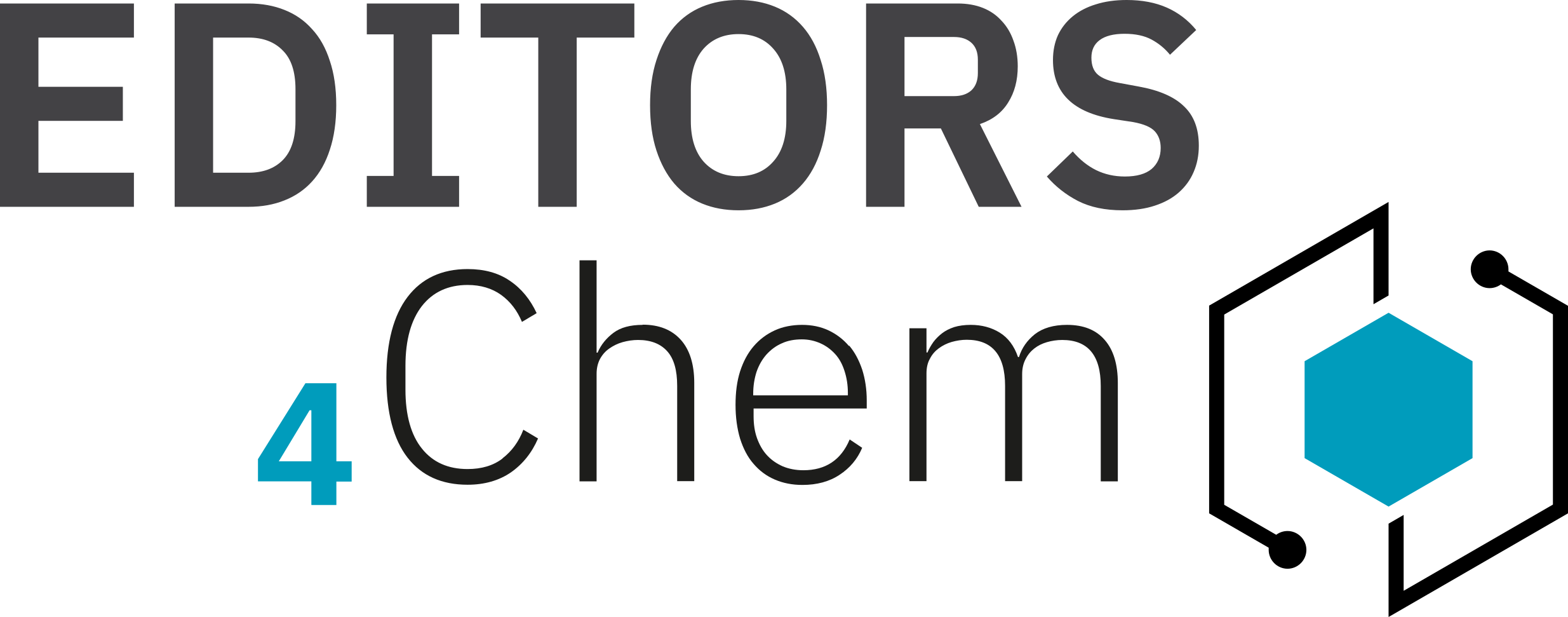NFDI4Chem, together with members of IUPAC CPCDS, organised the 2nd Editors4Chem Workshop, which was held online via Zoom on November 2nd 2023.

This workshop is part of the holistic strategy of NFDI4Chem to increase the uptake of FAIR data publishing in chemistry by interfacing with the academic publishers. The importance of this topic to publishers was demonstrated by the fact that no fewer than 14 editors, representing 9 publishers active in chemistry, attended the three-hour workshop.
After a welcome from Steffen Neumann (NFDI4Chem, IPB Halle), Leah McEwen (IUPAC CPCDS, Cornell University Library) and John Jolliffe (NFDI4Chem, JGU Mainz) gave brief updates on developments from IUPAC and NFDI4Chem since the inaugeral Editors4Chem Workshop. The focus centered on FAIR scientific workflows FAIR—starting in the lab and culminating in the publication of manuscripts and research data.
Four thematic blocks
This was followed by four thematic blocks of short and concise presentations and discussion rounds.
The first session focused on linking of articles and datasets via PIDs in their PID metadata. Christian Lange (Beilstein-Institut) presented an approach, developed in a pilot project together with NFDI4Chem, of template-guided data availability statements and subsequent linking in metadata. Ian Bruno (IUPAC CPCDS, CCDC) highlighted use cases for repositories and publishers for using the Scholix framework to link articles and datasets.
In the second block, Nicole Parks (NFDI4Chem, ITC-RWTH Aachen) and Tillmann G. Fischer (NFDI4Chem, IPB Halle) presented resources for publishers provided by NFDI4Chem in the NFDI4Chem Knowledge Base. This was followed by John Jolliffe’s impulse talk on error culture, how it can deter people from sharing their data and how to embrace concepts of positive error cultures from non-academic backgrounds (e.g., Industry) to academia.
Machine-readable chemical structures were the main topic of the third block. Steffen Neumann presented approaches on how to improve the machine-readability of today’s articles and datasets, and Gerd Blanke (InChI Trust, StructurePendium Technologies) gave an overview of CT files such as molfiles, SMILES structure codes, and InChI structure identifiers.
For the last session, we were pleased to have Iain Hrynaszkiewicz (PLOS) present his reflections on developing a research data policy framework for all journals and publishers. It was developed with the RDA Data policy standardisation and implementation interest group and highlighted in the research data program by the International Association of Scientific, Technical and Medical Publishers (STM).
Summary and outlook
Despite being a virtual meeting without the coffee-table chats, lively discussions ensued for each block. While publishers may be competitors in the market, the discussion saw the great openness for pre-competitive collaboration to advance our chemical science without further complicating the publication process.
As next steps, NFDI4Chem will continue to collaborate with publishers on a set of pilot activities that the journals can adopt. These include the implementation of recommendations within the journals’ author guidelines and the adoption of technical solutions for submission workflows.
We thank all speakers and participants: It was truly a pleasure to have each of you at the 2nd Editors4Chem Workshop! Thank you for your active participation and the fruitful discussions!
The Organising Team of Editors4Chem:
Tillmann G. Fischer, NFDI4Chem, IPB Halle, Germany
Nicole Parks, NFDI4Chem, ITC-RWTH Aachen University, Germany
Sonja Herres-Pawlis, NFDI4Chem, RWTH Aachen University, Germany
Steffen Neumann, NFDI4Chem, IPB Halle, Germany
Leah McEwen IUPAC, CPCDS, Cornell University Library